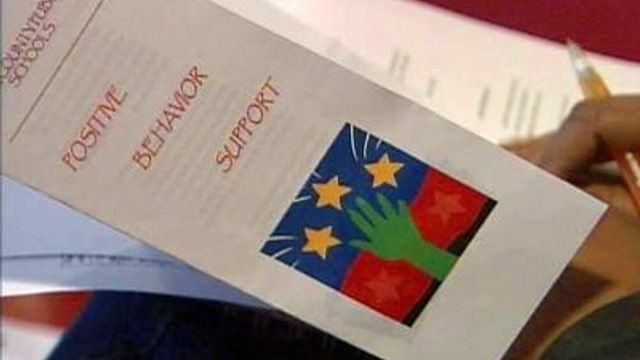Local News
Group: Suspension Rates Among Black Students Not Improving
Traditional schools will be back in session in a few weeks, but one Wake County group is targeting parents now. They're concerned that suspension rates among black students aren’t improving.
Posted — UpdatedRALEIGH, N.C. — Traditional schools will be back in session in a few weeks, but one Wake County group is targeting parents now.
They’re concerned that suspension rates among black students aren’t improving. As advocates focus on parents, educators are looking for new ways to teach.
Delphine Daniels has a personal stake in suspension rates in Wake County. Her sons, who are black, have been suspended multiple times, she said.
“So I just got really concerned, because the suspensions were coming so fast,” she said.
Sixty-seven percent of all short-term suspended students in Wake County for the past three years were black or multiracial and mostly boys. Wake County isn’t alone. It’s a statewide trend.
Calla Wright's advocacy group, Coalition of Concerned Citizens for African American Children, hosts monthly seminars to draw attention to and empower parents on these issues.
“Our goal is that all children are learning and that parents become effective advocates for their children,” Wright said.
One way to combat the problem is to look at the way children learn. That was the focus of a program at six schools in Wake County last year.
“They actually studied the different ways boys and girls learn,” said school board member Eleanor Goettee. “It rests with the quality of teachers and the training that teacher gets."
Daniels said she is doing her best to break the cycle.
“I’m petrified when my middle school child goes back that they’ll be waiting on him, and it will just be a matter of time before here we go again,” she said. “We don’t have the tendency to forget what happened the year before.”
Daniels said the hardest thing about suspensions is that they create reputations that are hard to overcome.
In Wake County, 34 percent of all black students get suspended. That's compared to 6 percent of the white student population.
In 2005-2006, 64 percent of suspensions were black students. Statewide, the numbers show the same trend.
Short-term suspension rates for black and multiracial students in other school districts showed the following:
In Johnston County, 46 percent of short-term suspensions are black or multiracial students. In Durham, the rate is 83 percent. Cumberland posts 73 percent. In Mecklenburg County, 79 percent of suspended students are black or multiracial.
• Credits
Copyright 2024 by Capitol Broadcasting Company. All rights reserved. This material may not be published, broadcast, rewritten or redistributed.





